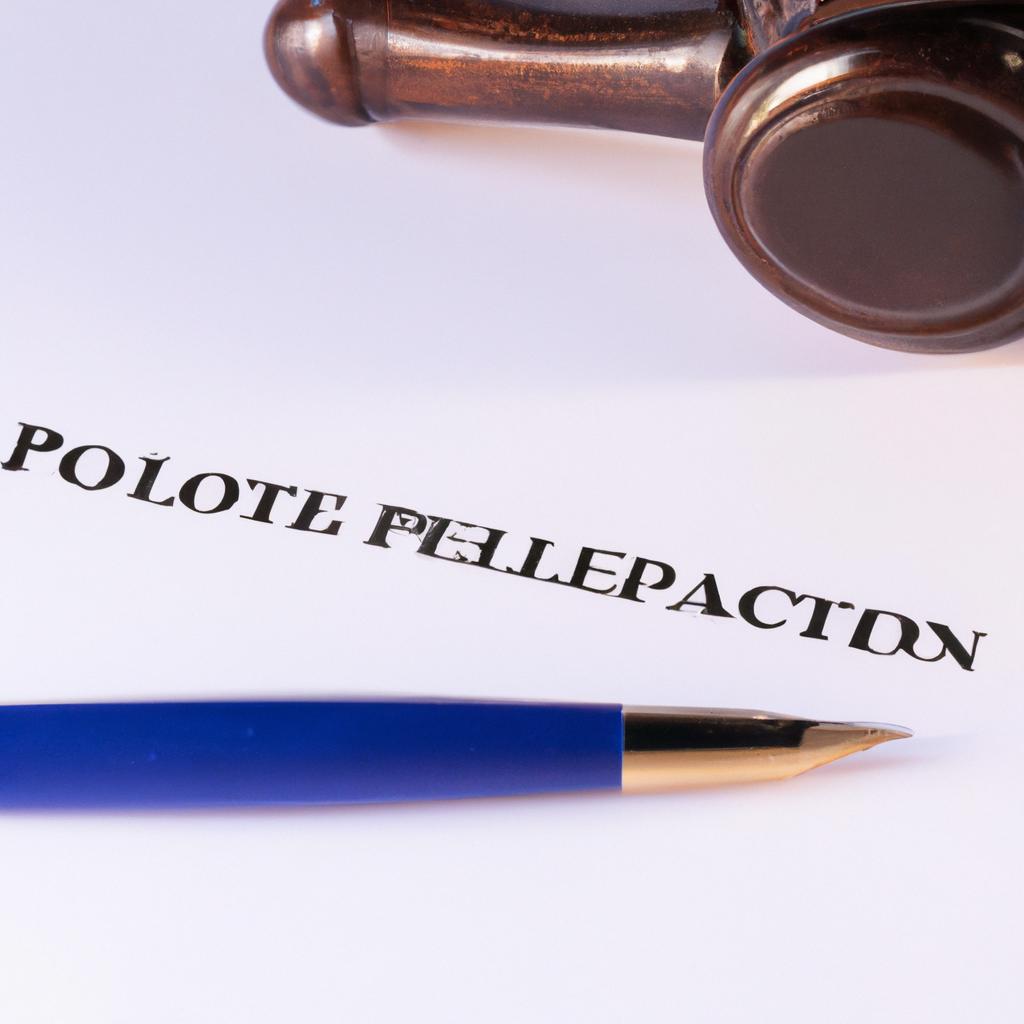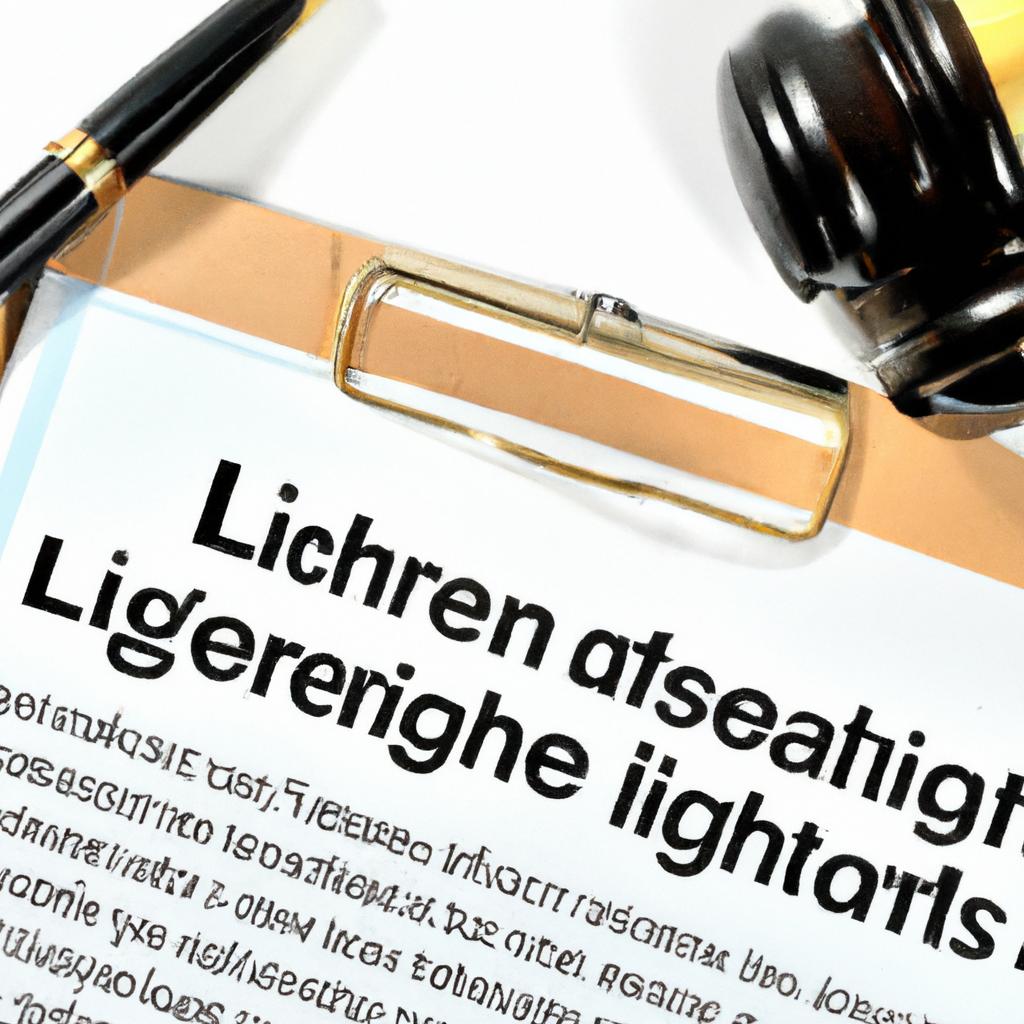As the delicate process of settling the affairs of a deceased loved one unfolds, one crucial task often arises for those left behind: claiming the property of the deceased relative. Navigating the legal complexities of inheriting assets can be a daunting undertaking, but with the right guidance and expertise, the process can be navigated smoothly and efficiently. At Morgan Legal Group in New York City, our team of experienced lawyers specializes in estate planning, probate, elder law, Wills, and trusts, offering valuable insight and support to those seeking to properly claim the property of a deceased relative. In this article, we will provide a comprehensive guide on how to navigate this important aspect of estate settlement, ensuring that the rightful heirs receive their inheritance with clarity and confidence.
Understanding the probate process for claiming a deceased relative’s property
When a loved one passes away, navigating the probate process to claim their property can be a daunting task. Understanding the steps involved can help you streamline the process and ensure a smooth transition of assets. Here are some key points to keep in mind when dealing with the probate process:
- Identify the Executor: The first step in claiming a deceased relative’s property is to identify the executor of their estate. The executor is responsible for managing the deceased person’s assets and distributing them according to their will or state laws.
- Gather Necessary Documents: You will need to gather important documents such as the deceased person’s will, death certificate, and any relevant financial records. These documents will help determine the value of the estate and ensure that assets are distributed correctly.

Navigating the legal requirements for inheritance rights and distribution
When a loved one passes away, can be a daunting task. Understanding how to claim property of a deceased relative is crucial in ensuring that their assets are distributed properly and according to their wishes. Here are some important steps to take:
First, determine if the deceased relative had a valid Will in place. A Will is a legal document that specifies how a person’s assets should be distributed upon their death. If a Will exists, it must be filed with the probate court and executed according to state laws. If there is no Will, the assets will be distributed according to state intestacy laws. Next, identify the deceased relative’s assets and liabilities, including real estate, bank accounts, investments, and debts. Consult with an experienced estate planning attorney to help navigate the probate process and ensure that all legal requirements are met.

Utilizing a skilled attorney to assist with property claims and disputes
When it comes to navigating the complexities of claiming the property of a deceased relative, having a skilled attorney by your side can make all the difference. At Morgan Legal Group, our team of experienced lawyers specializes in property claims and disputes, ensuring that your rights are protected and that the process is handled efficiently and effectively.
With our expertise in estate planning and probate law, we can guide you through the necessary steps to claim the property of your deceased relative. From determining the rightful heirs to resolving any disputes that may arise, our attorneys will work tirelessly to ensure that your interests are represented and that you receive the inheritance you are entitled to. By enlisting the help of a knowledgeable lawyer, you can rest assured that your property claim will be handled with the utmost care and professionalism.

Maximizing estate planning strategies to ensure a smooth property transfer process
Ensuring a smooth property transfer process can be a complex and overwhelming task, especially when dealing with the assets of a deceased relative. To claim the property of a deceased loved one, it is crucial to follow a strategic estate planning approach that maximizes efficiency and minimizes potential conflicts among heirs.
One effective strategy is to create a comprehensive estate plan that includes a will, trusts, and other legal documents that clearly outline the wishes of the deceased regarding the distribution of their assets. By working with experienced estate planning attorneys, such as Morgan Legal Group in New York City, individuals can navigate the intricacies of the probate process and ensure that the property transfer process is conducted smoothly and efficiently.
Q&A
Q: What steps should I take to claim the property of a deceased relative?
A: First, you should locate the deceased relative’s will and determine if you are named as a beneficiary. If there is no will, you may need to go through probate court to claim the property.
Q: How can I ensure that I receive my fair share of the deceased relative’s property?
A: It is important to work with a lawyer or legal professional who can guide you through the process and ensure that you receive your fair share according to the laws of inheritance.
Q: What should I do if there are other family members contesting the will or disputing the distribution of property?
A: If there are disputes among family members, it may be necessary to seek mediation or legal action to resolve the issue. It is important to consult with a lawyer to protect your rights.
Q: Are there any taxes or fees that I need to be aware of when claiming the property of a deceased relative?
A: Depending on the value of the property and the laws in your jurisdiction, there may be taxes or fees associated with claiming the property. It is important to consult with a tax professional to understand any potential liabilities.
Q: How long does the process of claiming the property of a deceased relative typically take?
A: The timeline for claiming property can vary depending on the complexity of the estate and any disputes that arise. It is important to be patient and work diligently to ensure a smooth and fair distribution of the property.
To Wrap It Up
As you navigate the process of claiming the property of a deceased relative, remember to approach each step with patience and diligence. Dealing with the loss of a loved one is never easy, but by following the necessary legal procedures, you can ensure that their assets are distributed according to their wishes. Remember to seek assistance from legal professionals and take the time to gather all necessary documents and information. In the end, by carrying out this important task, you will honor the memory of your deceased relative and uphold their legacy for future generations.
 How to Claim Property of a Deceased Relative: A Complete Guide
How to Claim Property of a Deceased Relative: A Complete Guide
Losing a loved one can be a difficult and emotional time. Amidst the grieving process, there are also important and practical matters that need to be addressed, such as claiming the property of the deceased relative. This process can seem daunting and overwhelming, especially if you have never dealt with it before. However, understanding the steps involved and knowing your rights can make the process smoother and less stressful. In this comprehensive guide, we will discuss everything you need to know about claiming the property of a deceased relative.
Understanding the Estate and Probate Process
Before delving into the specifics of claiming property, it is important to understand the estate and probate process. An estate is the collective term for all the property and assets left behind by the deceased individual. This can include real estate, bank accounts, investments, personal belongings, and more. Probate is the official legal process that oversees the distribution of the estate to its rightful beneficiaries or heirs.
It is important to note that not all property goes through probate. Property that is held jointly with another person or property with a designated beneficiary, such as life insurance policies or retirement accounts, will pass directly to the designated person without the need for probate. However, if the deceased relative had a will, the probate process will be necessary to validate the will and distribute the assets accordingly.
Determining the Legal Heirs
The first step in claiming the property of a deceased relative is determining who the legal heirs are. Legal heirs are individuals who are entitled to inherit the estate according to state laws. In most cases, the spouse and children of the deceased are considered the primary legal heirs. If the deceased did not have a will, the state’s laws of intestate succession will dictate who the legal heirs are. These laws vary from state to state, but generally follow a hierarchy of relatives, starting with the spouse, children, parents, siblings, and so on.
If the deceased had a will, the named beneficiaries in the will are considered the legal heirs. If the will is deemed invalid or if there are no named beneficiaries, the state’s laws of intestate succession will apply.
Obtaining a Death Certificate
To begin the process of claiming property, you will need to obtain a death certificate for the deceased relative. This can be done by contacting the state’s vital records office or by requesting it through the funeral home. You will need multiple copies of the death certificate as it will be required for various legal and financial matters.
Locating and Examining Important Documents
The next step is to locate and examine important documents related to the property and assets of the deceased. This can include the will, insurance policies, bank statements, deeds, and more. These documents will provide vital information on the assets and how they are owned, such as joint ownership or designated beneficiaries.
If the deceased had a will, it is important to review it carefully to ensure its validity and understand how the assets are to be distributed. If there are any concerns or disputes about the will’s validity, it is advisable to seek legal counsel.
Hiring an Attorney
While not necessary in all cases, it is highly recommended to hire an attorney to assist with the probate process and claiming the property of a deceased relative. An experienced probate attorney can guide you through the legal complexities and ensure that your rights are protected. They can also help resolve any disputes that may arise regarding the distribution of the estate.
Opening an Estate Bank Account
To facilitate the distribution of the estate’s assets, it is advisable to open an estate bank account. This account will be used to pay any outstanding debts and expenses of the deceased, as well as to transfer funds from the deceased’s accounts and manage any incoming assets.
Distributing the Property
Once all debts and expenses have been paid and any necessary legal steps have been taken, the remaining assets of the estate can be distributed to the legal heirs. This process may involve selling or transferring ownership of real estate, closing bank accounts, and transferring investments or personal belongings. It is important to document all transactions and keep accurate records.
Taxes
In some cases, there may be taxes owed on the estate, such as estate and inheritance taxes. It is important to consult with a tax professional to determine the taxes owed and to ensure that they are paid in a timely manner.
Practical Tips and Best Practices
– Start the process as soon as possible: Claiming property of a deceased relative can be time-consuming and may involve multiple steps. It is advisable to start the process as soon as possible to prevent any delays or complications.
– Communicate with family members: Having open and honest communication with family members can help prevent disputes and ensure that everyone is on the same page regarding the property distribution.
– Keep accurate records: It is crucial to keep accurate records of all transactions and documentation related to the estate to avoid any potential legal issues.
In Conclusion
The process of claiming the property of a deceased relative can be complex and overwhelming, but with the right understanding and guidance, it can be manageable. It is important to follow the necessary legal steps, communicate effectively, and seek professional help when needed. By doing so, you can ensure that the property is distributed according to your loved one’s wishes and your rights as a legal heir are protected.

